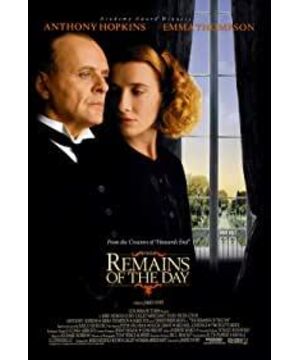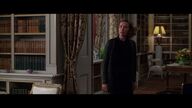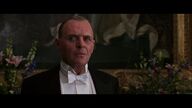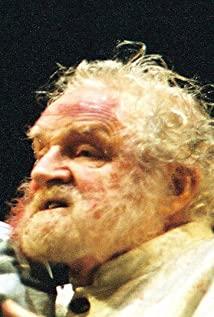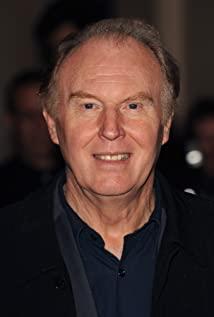The film harmoniously promotes the development of three lines with a quiet narrative. Let's call these three lines "professional line", "emotional line" and "political line" respectively.
[Professional Line] - Most of the opening chapter describes how a group of housekeepers and servants carry out their work in this Darlington mansion. In this relatively closed space, a group dominated by Mr. Stevenson, everyone In [Love], my work is different from most stories about "Love". There is no cheap chicken soup, no deliberate guidance, or even asking someone to do what they have to do. It seems that everything is orderly. inwardly. Through Stevenson's recommendation of old fathers, old fathers telling Indian stories, Stevenson's organization of conference reception details, as well as his tight-lipped and clutter-free professionalism and professional ethics, the core of "love" is gradually peeled off. Since their self-confidence comes from their belief that people are equal regardless of whether they are serving or being served, it comes from the concept of respecting oneself first to gain respect from others, and interprets the combination of ordinary work and sacred heart. Especially when Stevenson replies, "A man's satisfaction must be built upon the conscientious service of his employer, and that employer must be exceptional, and spiritually . . .", perfecting this story line The idea of that is [decent] and [dignity].
[Emotional Line] - If there is one word to describe the emotional line, it must be the endless [regret] surrounding the male lead. Stevenson admired and loved his old father, who appeared when the story needed him to come, and died when the story needed him to go. But he kept hiding his emotions, Miss Kenton left, and his lover did not get married. This is regret two; Stevenson was loyal to Lord Darlington, conscientious and even forgot his personal life, but Darlington was considered to have made a political mistake , deeply condemned by public opinion, this is regret three.
And Miss Kenton's emotional development, sublimation, and despair in the film progressed with several scenes, like a dagger pierced into her heart again and again. They are Kenton arranging flowers in Stevenson's room every day, and then borrowing a book to ask about his body's proximity; Kenton pretending to be tired and going to take a day off on a date, and blaming Stevenson for his incomprehensible amorous feelings, and Stevenson standing at the window. Watching for a long time; Kenton came back and told Mr. Ben to marry him; Kenton once again confirmed his acceptance of the proposal and offered to resign, while Stevenson suppressed his inner entanglement... This emotional line is a gentle, Restrained and elegant.
[Political Line]——With several gatherings held by Lord Darlington in the mansion, he tried his best to mediate the harmony of different political forces, and brought together the opportunity to give Germany peace after the war. A group of upper-level characters with different styles put the whole story in the background before and after World War II, corresponding to the closed mansion, cleverly broadening the sense of space, and being in it as the owner and housekeeper of this mansion is a different kind of Sitting well and watching the sky. It causes viewers to think about the deep-seated confusion of the times, such as war and peace, justice and goodwill, greed and desire for power. The layout instantly opened up.
It is very valuable that the narrative and fusion techniques of these three lines are perfect.
Therefore, even if the film or the original novel has been released for more than 20 years, its story is still not old-fashioned, and its practical significance still shines.
If we only analyze it from a technical level, it is also remarkable.
Conception, both noble and universal model value. It runs through the career line of the film throughout, excavating professional understanding and loyalty, inner dignity and self-confidence. In terms of love, it is the beauty of sincerity and graceful restraint, which reshapes the two different styles of love in that era.
The narrative structure is one of the highlights of the film. Calm and unhurried, flashbacks, interludes, slow narration and quick switching, although there is no strong plot push, it is addicting.
The characterization is also a classic. The two leading actors are Oscar veterans. The heroine's lively eyes are full of anticipation and helplessness, and the male lead's sluggish eyes are full of struggles and tears, proving once again that eyes are the window to the soul. The handling of the relationship between the characters, in addition to the male protagonist and the female protagonist, there are also just two exchanges between father and son, employer and housekeeper, politicians, superiors and subordinates, and even "rivals" Stevenson and Mr. Ben, It is also clean and not procrastinated, pure and distinct!
When we saw Stevenson, the male lead, repeatedly rejecting and missing Miss Kenton's love, many people may think that this kind of restraint and elegance is not desirable, and lack the spirit of courage to love, so they sigh with regret. But the foreshadowing before the film was well done. The Darlington Mansion was even in the industry at that time. When the butler fell in love with the housekeeper, the servant and the maid, they should resign, so, why is Stevenson loyal? Swing between a career and choosing a love? Stevenson seems to say "NO" throughout the film, and when faced with malicious inquiries from guests, he said "I'm sorry sir, I can't answer"; when faced with Miss Kenton's euphemism for being proposed to marriage, He said "uh, ok, bless you"; when confronted by his employer, Lord Darlington, recalling the past and asking him if he remembered, he said "oh my lord, I was working hard and I don't remember". Three understatement "NO" are actually three strong "YES" - I am focusing on my work; I love you in my heart, but I can't do this now; I don't want to recall the past and make you sad...
As for the characters Body, position performance, including demeanor, action, dress, lines, all have good performance. For example, the use of position, when Stevenson and Miss Kenton are talking about work, they mostly use the bright and bright positions of sunshine, flowers, and kitchen; and when the two are involved in emotions, psychology, and ambiguous, the scenes are mostly dark and dim. . When Stevenson listened to the scene where Miss Kenton agreed to Mr. Ben's proposal, Stevenson turned around in the long and narrow corridor, as if falling into a feeling of the passage of time and the passage of time, while Miss Kenton said this slowly Back in the room, the light on his face gradually dimmed, which suddenly made people feel sad and disappointed.
The scenes and tone of the whole film are full of oil painting-like texture, elegant dark indoors, bright light in the kitchen, outdoor or fresh or heavy photography language. In the scene where the characters appear, the camera position adopts a gentle and constant sense of presence, without too much visual impact and close-up rendering, for fear of disturbing the narrative of the story itself. Therefore, the photographer's expression is just like this love story, with just the right restraint. .
The dialogue (lines) is also the brilliance of this film. Because of the lack of strong plots and the lack of commercial films, the development of the story largely depends on the dialogues of the characters. Stevenson's understanding of the profession, the politicians' interpretation of peace, the love that Miss Kenton wanted to confide in, and even the few lines of old Stevenson, all connected this mansion to the outside world. , and the core of the story that the author and director want to express is presented naturally and smoothly.
There are many heart-moving clips in the film, such as the short appearance of old Stevenson because of his son's recommendation for the position of a servant, and several times of old age and incompetence. , hair, and skin are so clean and smooth; for example, when Miss Kenton entered the room to arrange flowers and snatched the book to get close, Stevenson's avoidance; two narrations about marriage proposals and promises, Stevenson pretended to be unsympathetic They turned around and walked away, the drama in their eyes and the real ups and downs in their hearts... Of course, the most tear-jerking scene was the scene of saying goodbye in the rain at the bus stop many years later. It's a pity... (This ending is reminiscent of the ending of the 2017 Spring Festival documentary "La La Land", when the male and female protagonists met unexpectedly at the Xiaosai Bar, which was also mixed.)
In short, I can't pick it out . What obvious bugs and deficiencies. What makes me awe-inspiring is that the foreshadowing of emotions is simple but sufficient, and the mobilization of emotions is suppressed but full of tension.
View more about The Remains of the Day reviews


